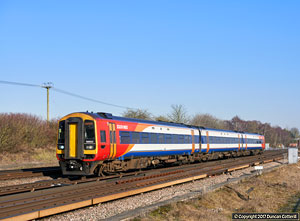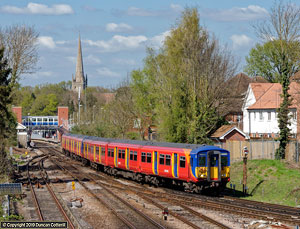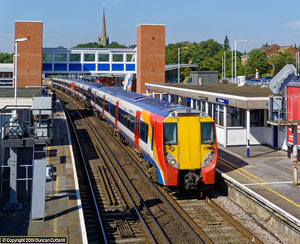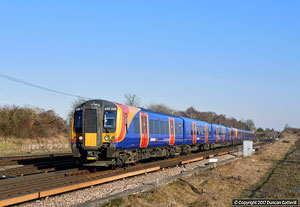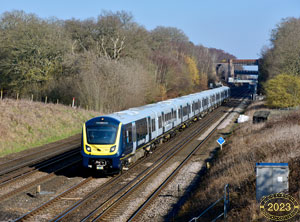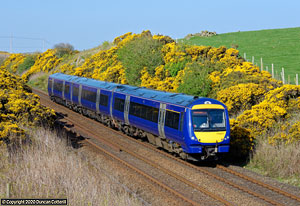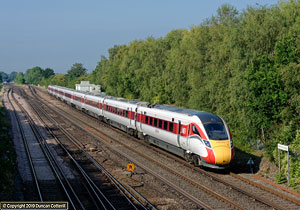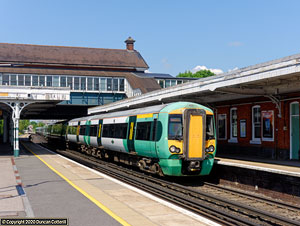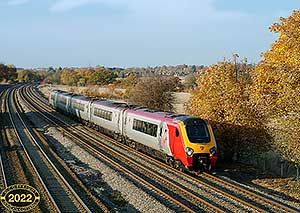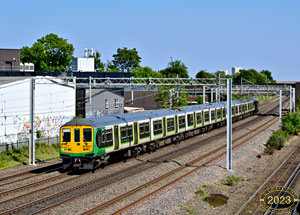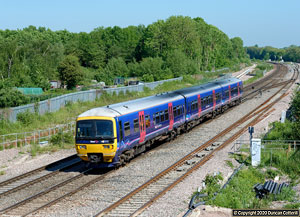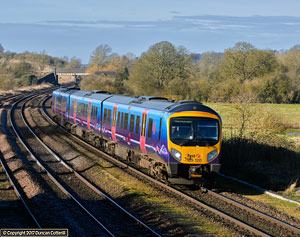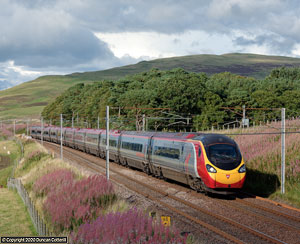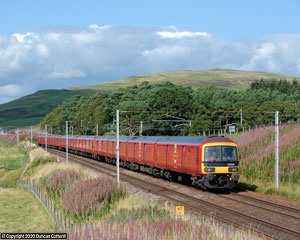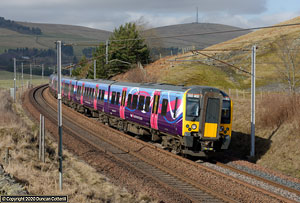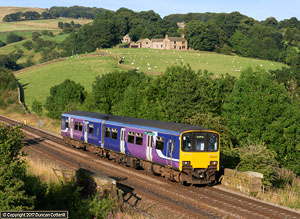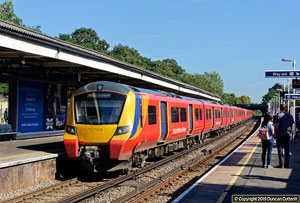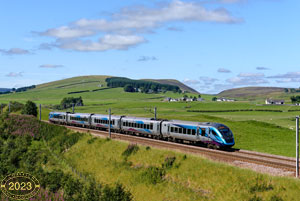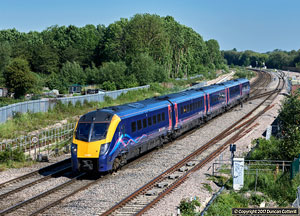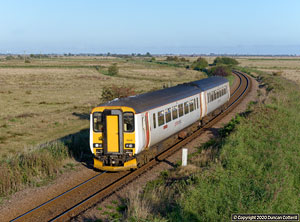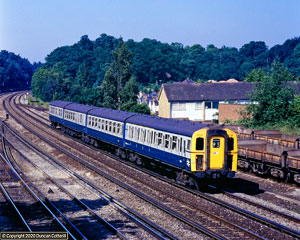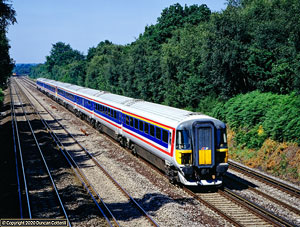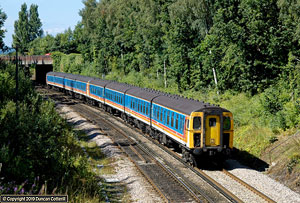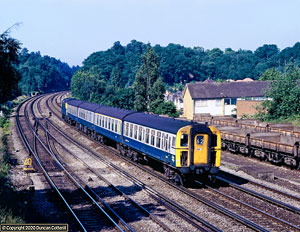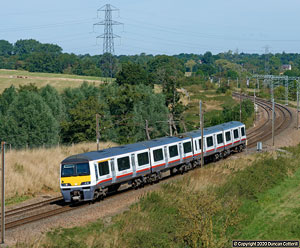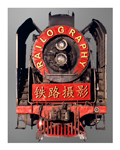Class 158, 159
69 photos
updated : 2024-02-29
The 2-car Class 158 DMUs were introduced in 1989 to replace loco hauled trains on major regional routes. Some now run as 3-car sets. The 159s are very similar 3-car units originally owned by Network South East rather than Regional Railways. Both classes are still hard at work across the network.
Class 455, 456
26 photos
updated : 2024-02-29
137 Class 455 4-car 750V DC EMUs were built in the mid-1980s to replace older slam-door stock. The 24 Class 456 2-car units followed in 1991. The 456s and many of the 455s have recently been withdrawn. The remaining 455s are in service with South Western but are overdue for replacement.
Class 458
23 photos
updated : 2024-02-29
The 30 Class 458 4 car 750V DC EMUs were the first new design for a privatised operator and have had an interesting life, being rebuilt after 10 years and now going through another conversion prior to swapping their outer suburban existence for a starring role on the Waterloo - Portsmouth route.
Class 444, 450
71 photos
updated : 2024-02-29
These classes are similar EMUs from the Siemens Desiro Mainline range. The 127 Class 450 4-car units for outer suburban services were introduced in 2003 and the 45 Class 444 5-car units for long distance services the following year. All are 750V DC 3rd rail units and work for South Western Railway.
Class 701
28 photos
updated : 2024-02-27
The Class 701 750V DC EMUs are from the Bombardier Aventra range and intended for use on South Western's inner and outer suburban routes. An order for 60 10-car and 30 5-car sets was placed in 2017 and, although testing has taken place, the vast majority of units are yet to enter service.
Class 168 & 170-172
78 photos
updated : 2024-02-21
Classes 168, 170, 171 and 172 are all developments of the BR Class 165 and 166 DMUs and were built for privatised operators by Bombardier in Derby from the late 1990s. Many are used on longer distance services such as Marylebone - Birmingham, Nottingham - Cardiff or Glasgow - Inverness.
Class 800 - 810
63 photos
updated : 2024-02-21
Classes 800 to 810 are new bi-mode high-speed units built by Hitachi for various operators including LNER, GWR and TPE and introduced in 2017. Some units have plenty of diesel power and can operate normally away from the wires, others just enough to keep them moving if the power fails.
Class 375, 377, 379, 387
26 photos
updated : 2024-02-20
Classes 375, 377, 379 and 387 are all Bombardier Electrostar EMUs, intended for outer suburban and medium distance services. Some are 25kV AC only, others 750V DC only and yet more are dual system. Almost 500 units are in service with various operators, mainly in the south-east of England.
Class 220, 221, 222
61 photos
updated : 2024-02-19
Classes 220, 221 and 222 are similar high speed DEMUs built by Bombardier between 2000 and 2005. In total 105 units were built in various configurations for long-distance services. Cross Country, Avanti West Coast and East Midlands Railway all currently operate fleets of these trains.
Class 319, 769
3 photos
updated : 2024-02-11
86 Class 319 4-car 25kV AC / 750V DC EMUs were built between 1987 and 1990 for Thameslink services. Since their replacement in 2015 some have been used on other routes or converted to Class 768 parcel units or Class 769 diesel/electric hybrids. The remaining 319s and 769s are due for withdrawal.
Class 165, 166
84 photos
updated : 2024-02-08
The Class 165 and 166 DMUs were introduced in 1990 for local and regional services on the Thames Valley and Chiltern routes. Many have now moved to other GWR services further west. As DMUs go they're among the most attractive in use today with rounded fronts unspoilt by corridor connections.
Class 185
12 photos
updated : 2024-02-02
The 51 Siemens built Class 185 3-car DMUs all work for Trans Pennine Express on various medium to long distance routes across northern England, occasionally reaching Glasgow or Edinburgh as well. They were built in 2006 and are the UK's only examples of Siemens Desiro DMUs.
Class 390
37 photos
updated : 2024-01-20
Virgin Trains introduced the 53 Alstom built Class 390 Pendolinos to the West Coast Main Line in 2002 and these 9 and 11 car 25kV EMUs soon dominated Inter City services on the route. At the end of 2019, the class 390s passed to Avanti West Coast, the new franchisee, and remain on WCML services.
Class 325
5 photos
updated : 2023-10-21
The 16 Class 325 4-car EMUs were introduced in 1995 for postal services and can run on 25kV AC and 750V DC electrified routes. They are currently operated by DB Cargo and can normally be found working trains between Willesden, Warrington and Shieldmuir for Royal Mail.
Class 350
28 photos
updated : 2023-10-20
The 76 Class 350s are 4-car 25kV EMUs from the Siemens Desiro Mainline range, built for outer suburban and long distance services from 2005. They are very similar to the Class 450 750V DC units. All 350s are now with London Northwestern, part of WMT, but 10 were used by Trans Pennine until 2020.
Class 150
10 photos
updated : 2023-08-11
The Class 150 was the first of BR's 'Sprinter' DMUs, introduced to replace life-expired first generation units in the mid 1980s. Around 130 units are in use, mostly 2-car sets with a few 3-car formations. They operate local services for Northern, Great Western, West Midlands and Transport for Wales.
Class 707
7 photos
updated : 2023-05-15
The 30 class 707 5-car 750V DC inner suburban EMUs are from Siemens' Desiro City range and entered service with South Western in 2017. They are in the process of being transferred to South Eastern but the late delivery of SWR's new Class 701s has delayed the move of some units.
Class 397
5 photos
updated : 2023-03-20
A small class of 12 EMUs operated by Trans-Pennine on long distance services linking Glasgow and Edinburgh with Liverpool and Manchester via the WCML. The 5-car units were built by CAF and introduced by TPE in late 2019. Despite running at up to 125mph they have no yellow warning panels.
Class 180
18 photos
updated : 2023-03-18
The 14 5-car Class 180 high speed DMUs were plagued with reliability issues in their earlier years. Originally all were with First Great Western but some later went to Hull Trains. The only current operator is Grand Central but they also worked for East Midlands until recently.
Class 156
6 photos
updated : 2023-03-16
Metro-Cammell built 114 2-car Class 156 DMUs for BR in the late 1980s. They were originally intended for medium-distance limited-stop services but soon gravitated to less important duties. All 114 units are still in service, currently working for the ScotRail and Northern franchises.
Class 423 4-VEP
12 photos
updated : 2020-06-18
The 4-VEP, later Class 423 750V DC EMU was a mainstay of the Southern Region's outer suburban services from the late 1960s until the early 2000s. They were 90mph 4-car units with an external door to every seating bay, a factor that led to their demise due to safety concerns over slam door stock.
Class 442
7 photos
updated : 2020-06-18
The Class 442 750V DC EMUs were 5-car sets built for Waterloo - Weymouth services when electrification was extended to Weymouth in 1988. They worked for Gatwick Express from 2007 to 2016. A return to SWR for Portsmouth services was cancelled in 2021 and most vehicles have now been scrapped.
Class 421 4-CIG
4 photos
updated : 2020-06-18
The 4-CIG, later Class 421, was the standard Southern Region long distance 750V DC 4-car EMU from the late '60s, used across the region and particularly on the Central division. Safety concerns over slam-door stock led to their replacement by new sliding door stock during the first few years of this century.
Class 491 4TC
5 photos
updated : 2020-06-18
The Class 491, later 438, also known as the 4TC, was developed for the Bournemouth electrification in 1967 and was an unpowered 4-car unit that was pulled or pushed by locos or EMUs. They saw use on other routes including the Waterloo - Salisbury line. All were withdrawn by 1990.
Class 320, 321, 322
5 photos
updated : 2020-04-06
Classes 320, 321 and 322 are closely related 25kV AC EMUs built by BREL's York Works around 1990. The 3-car Class 320s work for ScotRail around Glasgow. Some Class 321 4-car units still work for Greater Anglia but most have been withdrawn. A few 321s have been converted for light freight use.
My home country where I've been photographing trains since the late 1970s. Only a small fraction of my British material is online at present but it covers a wide range of loco classes, train types and photo locations, from northern Scotland to the south coast of England and from Deltics to DMUs.
Britain's railways are far less interesting than they were a few decades ago but despite the decline it is still possible to find trains and locations that are worth photographing.




 options
options hide options panel
hide options panel